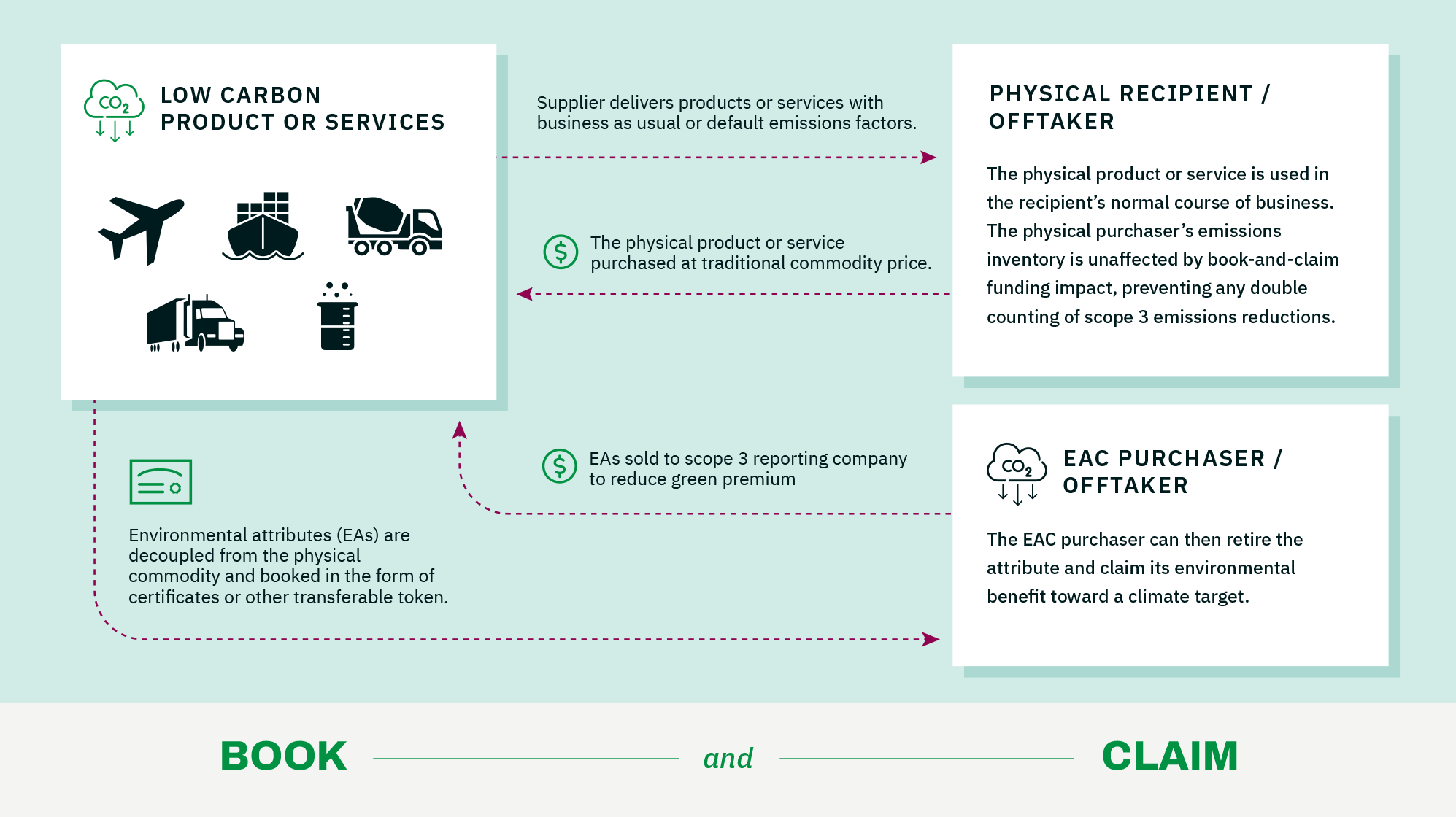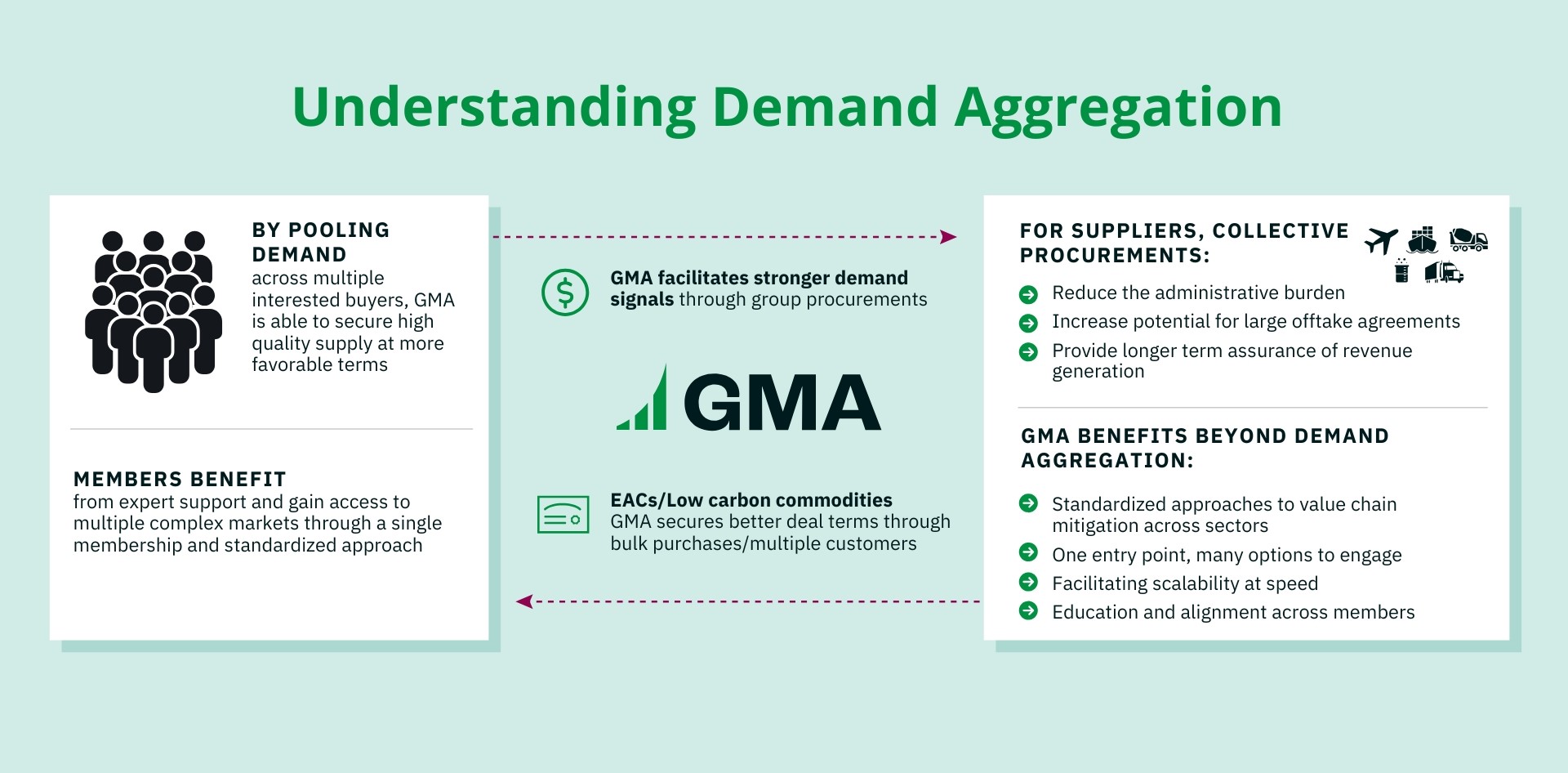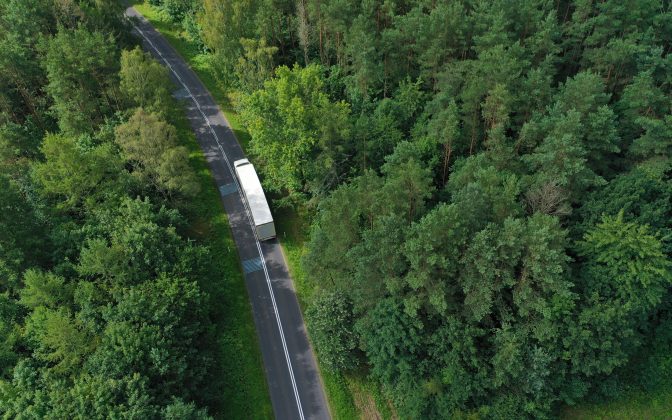How We Work
GMA’s initiatives enable companies with strong sustainability commitments to invest in decarbonization actions within their value chains and transform hard-to-abate sectors such as aviation, trucking, cement, maritime shipping, and chemicals. Our programs aggregate demand for low-carbon goods and services, facilitated by innovative book and claim systems, to allow participants to efficiently capture and claim Scope 3 emission reductions in their greenhouse gas inventories while channeling new investment in clean technologies. By activating new sources of funding, GMA and its members accelerate a cycle that increases green commodity production and speeds progress to a net zero future.
GMA has an exclusive focus on programs that help decarbonize hard-to-abate sectors. If you’re exploring work on a buyers alliance in a heavy industry or transport sector not already listed below, we would love to connect with you. Alternatively, if you’re interested in applying a collective procurement approach to a sector outside of heavy industry or transport, we would be happy to guide you on your journey.
Reach out to us here!
Where We Specialize
Book and Claim Design
GMA leads or supports the development of book and claim systems, digital registries that track the flow of environmental attributes, and GHG accounting approaches within emerging environmental markets, allowing buyers and suppliers of decarbonized goods and services to drive impact and grow the market even when they are unable to transact the physical product.

Demand Aggregation
GMA’s programs pool member demand to send strong demand signals, giving suppliers the confidence and market certainty they need to scale production.

Procurement System Design
GMA’s joint procurement initiatives attract high-integrity suppliers, and offer buyers a credible, transparent, and efficient pathway to contract for low-carbon goods and services within their value chains.

Pilot Project Execution
GMA develops pilot projects to procure and deploy new technologies in hard-to-abate sectors that act as proof of concept to inform future rounds of initiatives.

Implementation and Market Integration
Following the pilot phase, GMA shifts its focus to implementation and market integration—running subsequent procurements informed by evolving market dynamics and ensuring that supportive infrastructure, such as sustainability frameworks and EAC registries, continues to enable high-integrity decarbonization. Our programs are designed to both feed actionable insights into the broader market and absorb real-time intelligence in return, allowing us to continuously refine our procurement strategies and accelerate cohesive, systems-level innovation.











